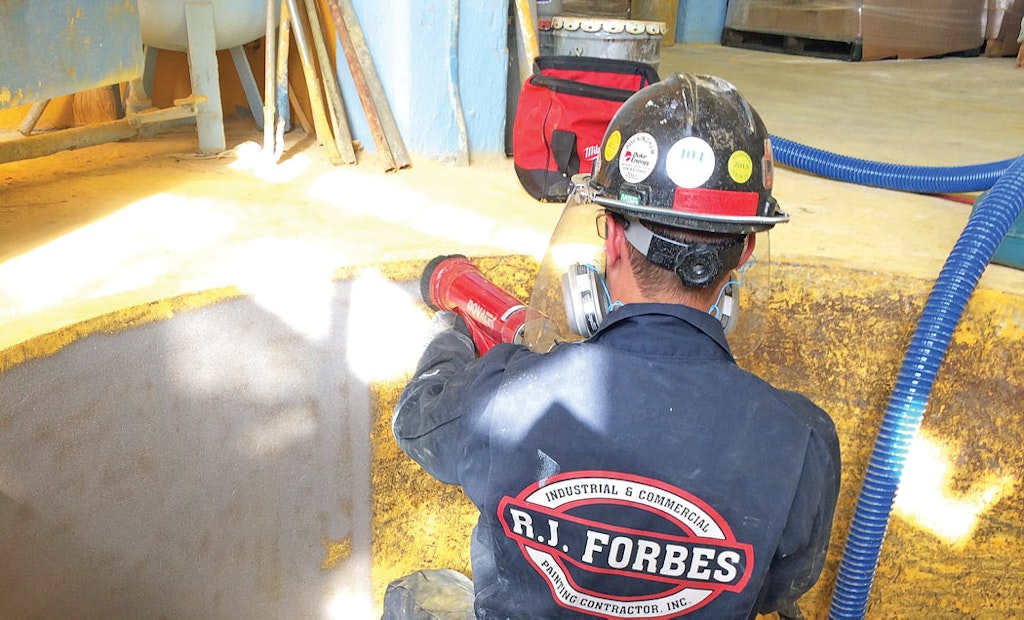
R.J. Forbes Painting technician Weston Forbes uses the Rapid Prep VB 1200 blast and recovery system to clean a tank at a chemical manufacturing facility.
Ross Forbes loves how Rapid Prep VB 1200 blast and recovery systems help his company, R.J. Forbes Painting, clean tanks, pipelines and industrial machinery to rigid specifications in preparation for painting. He also loves what they don’t do: Require as many employees on the job....





